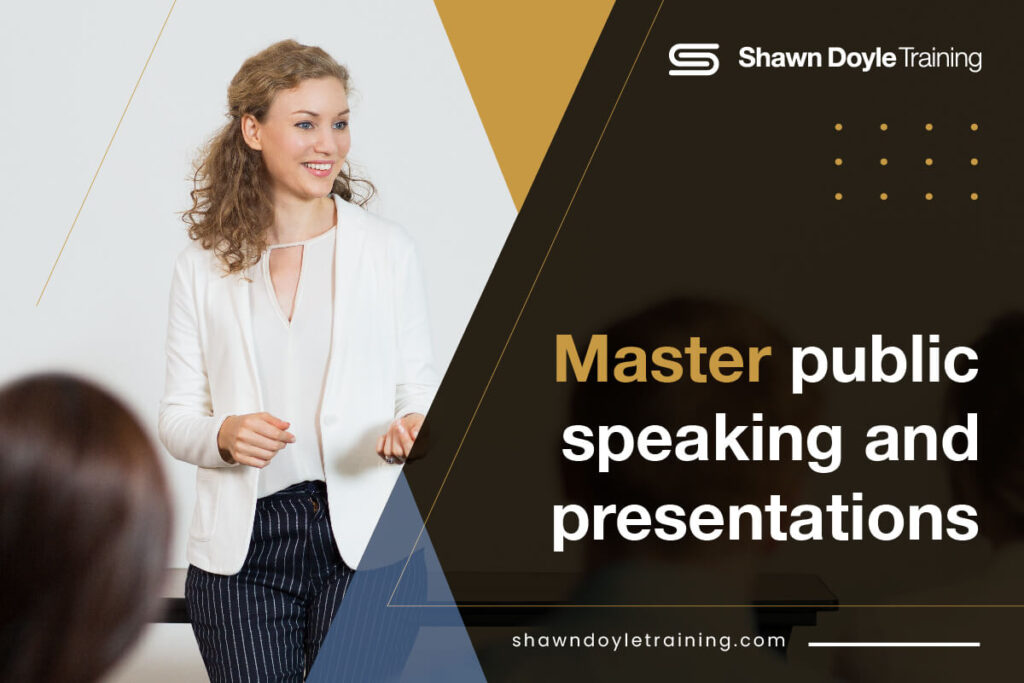“I’ve learned that fear limits you and your vision. It serves as blinders to what may be just a few steps down the road for you. The journey is valuable, but believing in your talents, your abilities, and your self-worth can empower you to walk down an even brighter path. Transforming fear into freedom—how great is that?”
– Soledad O’Brien
There is a powerful, dark, and destructive unseen force holding people back every day: fear. It is and can be debilitating. Fear can also kill happiness.
You may be familiar with Franklin Delano Roosevelt’s famous speech where he said, “The only thing we have to fear is fear itself.”
I think that’s a very interesting quote because I do believe that it is true. I often teach presentation skills, and in my workshops , they learn all about presentation skills and then it comes to that magic moment where they get up in front of the room to practice, and I’ve never seen people so fearful of something as harmless as getting up in front of a group to speak. It is as if they are going to die and they are terrified! I often wonder why they’re terrified and what they’re terrified about. We always talk in that class about the fear of presenting and what causes people to have that irrational fear.
Why do people have any fear? I think there are several reasons. See if these are true for you.
- Here is how history builds fear. You’ve had a bad experience in the past with something that was bad or negative. A bad result. An unpleasant memory, an unpleasant experience. You have the bad history attached to that experience. For example, when people are talking about public speaking, they may have given a required speech when they were in the seventh grade and failed miserably and, worse, got made fun of. Now in their mind there is fear because there’s a negative connotation. As Sarah Parish once said, “Living with fear stops us taking risks, and if you don’t go out on the branch, you’re never going to get the best fruit.”
- Observation. You might not have experienced something directly, but you have seen it happen to other people. You may say or think things like:
-
- “Oh, I saw that happen to another person.”
- “Oh, I don’t want to do that. That looks scary.”
- “I’ve seen that result.”
- “I have seen people get ____ doing that (fill in negative result).
- “Oh, that is terrible, I am glad that didn’t happen to me.”
This is what I call observational fear. Because we have seen it happen to others and seen a negative result, we fear it as well. Someone sees a news story about some poor soul being attacked by a shark so they are then fearful of swimming in the ocean but the reality is the odds of being attacked are the same as being struck by lightning. It is irrational fear.
- A third reason why people fear is an overall lack of confidence. They don’t think they’re capable of doing whatever it is. They are not confident in their ability to achieve the result. This could be lack of self-esteem, inexperience, or negative feedback from others. When I first started my business, do you know how many people felt compelled to tell me how many businesses fail in the first five years? If I wasn’t a confident person, it could have rattled me!
- If you lack information and knowledge, it can cause fear. It can cause a lot of fear not knowing what you don’t know. Pope fear what they don’t understand. Years ago in my career, I accepted a new job and relocated from Fort Lauderdale, Florida, to the Philadelphia area. Some people were fearful for me and said things like, “Well, wow, you are moving and selling your house? What if you don’t like it or it doesn’t work out?” These comments were based on lack of knowledge about my opportunity. The result was that I became the Vice-President of Learning and Development at Comcast. That move paid off. As Jen Sincero said, “The key to growth is acknowledging your fear of the unknown and jumping in anyway.”
- Worst-case scenario. People often think, “Well, if I do this, that could happen (insert worst result).” Here is the formula- take a risk + terrible imagined result!!! Maybe I will get hurt, get divorced, get fired, must move, lose my house, go broke. This can really get people worked up. Is it any wonder this causes such fear? The funny thing is this worst-case scenario almost never happens. As John C. Maxwell said, “The greatest mistake we make is living in constant fear that we will make one.”
The big question for happiness then is: what do we need to do to overcome fear? Here are some helpful tools:
- Friends and family. First and foremost is the support of friends and family. If you have good, supportive friends, they can coach you. They will say, “You know you can do this.” “You’re capable of doing this.” “I know you can.” Having people believe in you and people who have your back will help reduce some of your fear. Reach out to them for help and support.
- Sit down at night or in the morning and open your journal and write down your fears. Write down why you fear it and write why you shouldn’t fear it. Slay the dragon by writing about it and acknowledging it. Fear lies in the dark, and it’s hard for it to survive in the sunlight. Journaling can be a big help in overcoming a lot of your fears.
- Training and education. I have been involved in the past with Toastmasters, an organization that helps people become better communicators. When a person does their first speech, they’re often shaking and are a nervous wreck. When they get up and give their tenth speech, and I’m saying to myself, who’s that? They’re confident and they’re competent. Well, why is that? Because they’ve received excellent education and training and practice, and their confidence level went up, and their education and training helped them by giving them tools to get over their fear. As William Jennings Bryan said, “The way to develop self-confidence is to do the thing you fear and get a record of successful experiences behind you.”
- Do it anyway. I often find that with things that I feared the most, the best way to get rid of it was to just do it. Believe it or not, at one point in my life, I feared singing in public. It’s a funny fear because I speak in front of large groups all the time. So, what did I do? I went on a cruise, and I signed up to sing in the talent show. Yes, I figured if I’m going to do it, I might as well do it big! So I bit the bullet and I sang in front of about two thousand people, had a lot of fun, and overcame my fear of singing in public.
- Frequency conquers fear. Let me give you an example. When you first learned how to drive a car, and I’m sure in the beginning you were clutching that wheel and you were very nervous. The gas, the brake, the speed, the steering wheel, signaling. Wow. There was a lot to focus on at once. But what happened? You drove thousands of hours over the years. What happened eventually? Well, eventually, because you’ve driven so much, the fear went away. Now you drive down the road, drinking coffee, talking on your cell phone, putting on makeup, blow drying your hair, and reading a book. OK, I am kidding, but I have seen people do that! But you’re doing all sorts of different tasks and you have absolutely no fear of driving. In fact, it’s scary sometimes when you get home and don’t really remember how you got there!
- If there’s something that you fear, partner with somebody else and let them help you through it. The support can be very helpful. An example of this is a support group. People who have similar challenges are partnering with each other. There is great power in a group. This reduces fear.
- If you have a fear of something, sit down and plan because a plan will destroy and flatten that fear. I sometimes hear people say, “I am nervous about doing my taxes this year. I am afraid of how much I am going to owe.” Meet with an accountant at the beginning of the year and put together a plan. That way, instead of being an ostrich, you can look up with your head out of the sand and have a long-term plan. The fear will be evaporated!
I want you to think about the things you’re fearful of and what is it that is really holding you back and try to incorporate some of these tools and techniques to flatten the fear! I know it can make a huge difference in your life by getting rid of the fear and replacing it with confidence! Be happy by not letting fear hold you back.
“Overcoming fear is the first step to success for entrepreneurs. The winners all exemplify that, and the hard work and commitment they have shown underlines what is needed to set up a business.”
– Richard Branson








